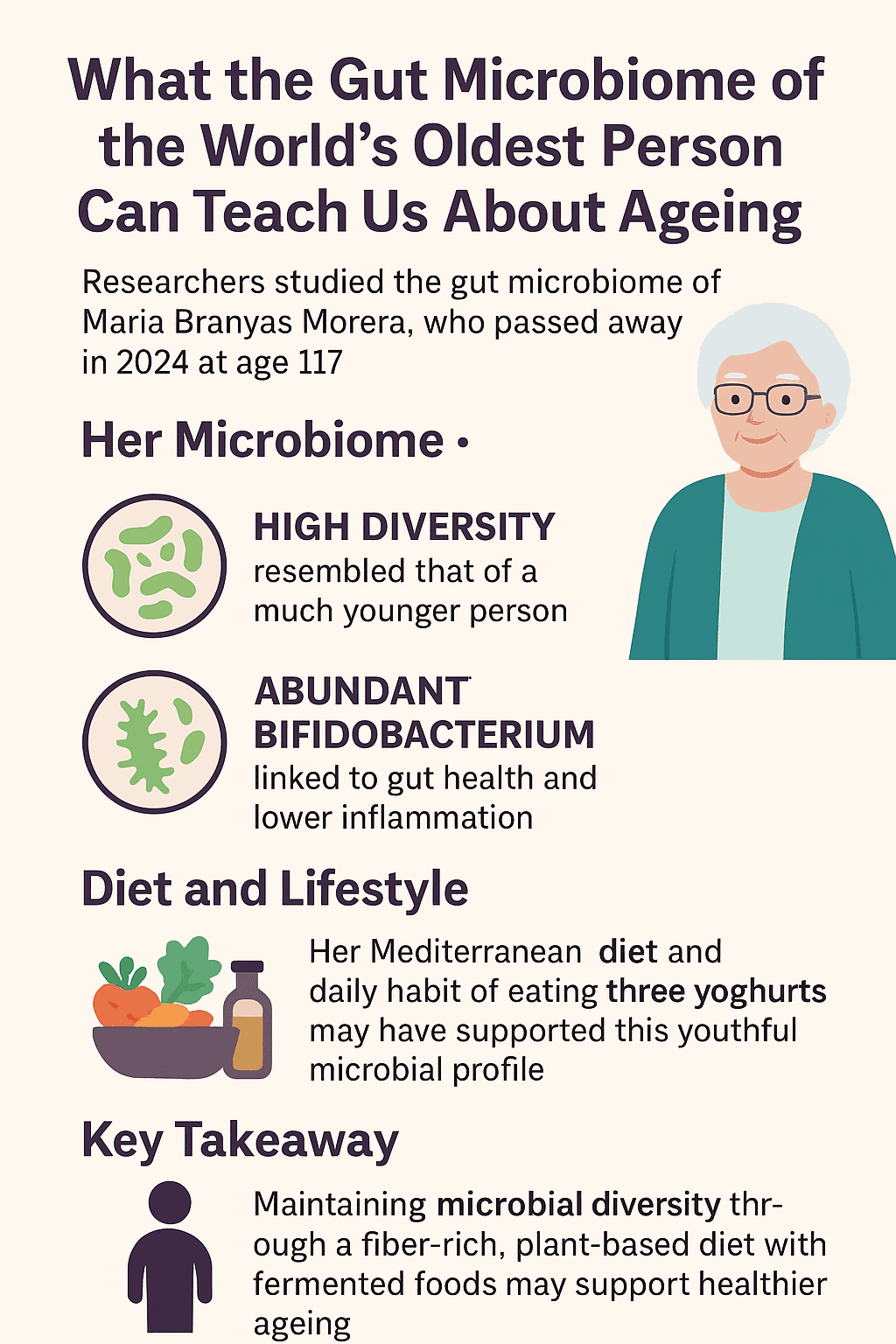🧬 What the Gut Microbiome of the World’s Oldest Person Can Teach Us About Ageing
Her Mediterranean diet and daily habit of eating three yoghurts may have helped maintain this microbial resilience. While genetics certainly played a role, these findings suggest that diet and lifestyle strongly influence gut health and may contribute to healthy ageing.
🔬 The Role of Bifidobacterium in Health and Disease
Multiple studies, including work by Dr. Sabine Hazan, highlight the significance of Bifidobacterium in maintaining immune balance and preventing disease:
- In her 2022 paper, “Lost microbes of COVID-19” (BMJ Open Gastroenterology), Hazan and colleagues found that patients with more severe COVID-19 had lower levels of Bifidobacterium and reduced microbial diversity.
- A 2024 case report by Hazan described how supporting the microbiome — including boosting Bifidobacterium levels — correlated with improved outcomes in a COVID-19-affected mother and newborn.
- Her research reinforces the importance of testing and tracking the microbiome as part of personalized medicine.
These findings align with broader scientific evidence showing that Bifidobacterium abundance tends to decline with age, and that lower levels are linked with inflammation, metabolic disorders, and frailty.
- Odamaki et al. (Frontiers, 2016) and Odamaki et al. (2017) showed that Bifidobacterium species composition changes across the lifespan, with healthy elderly individuals maintaining higher diversity and Bifidobacterium longum dominance.
- The Gut Microbiome as a Modulator of Healthy Ageing (Nature Reviews Gastroenterology & Hepatology, 2022) further emphasizes that gut microbial diversity protects against “inflammaging.”
- Immunity & Ageing (2020) reports that the loss of Bifidobacterium may accelerate inflammatory processes associated with ageing.
🌿 Why Checking Microbiome Content Matters
Together, these studies show that maintaining microbial diversity — especially Bifidobacterium — could be a marker of resilience and longevity. Regular microbiome testing can help identify imbalances early and guide personalized interventions such as dietary changes, probiotic supplementation, or prebiotic support.
While there is no single “longevity microbiome,” evidence increasingly supports that a balanced, fiber-rich diet with fermented foods can help sustain beneficial bacteria and promote healthier ageing — much like María Branyas Morera’s remarkable example.






